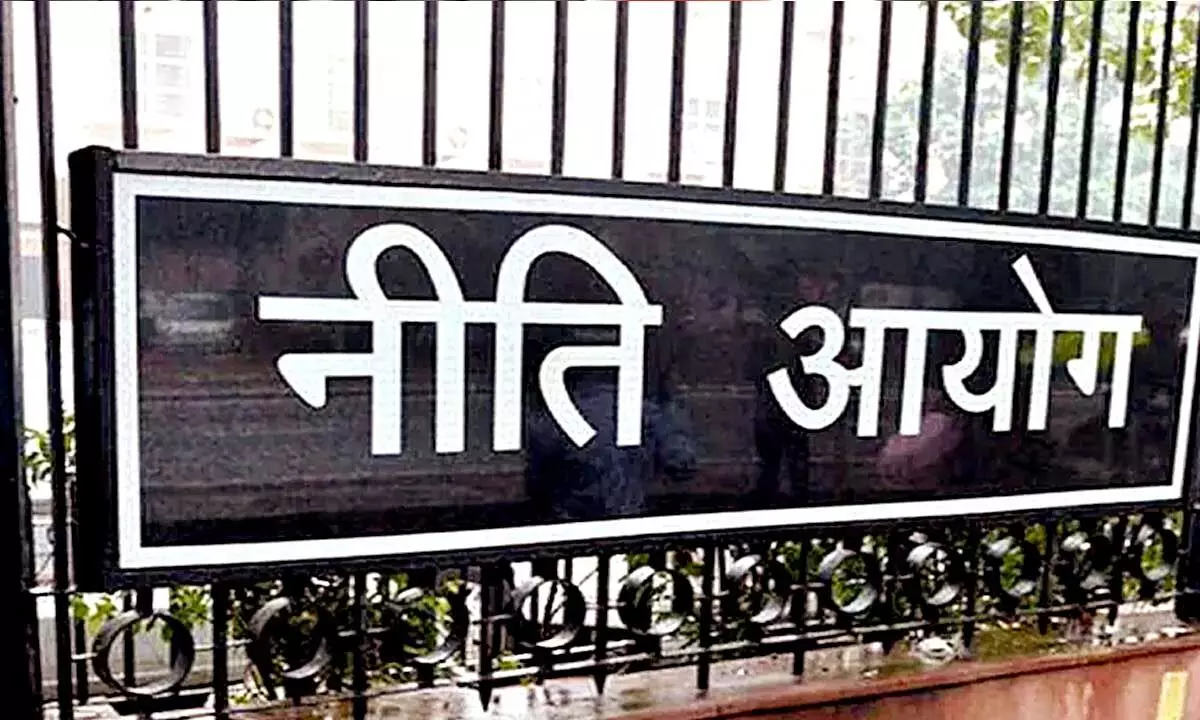Need MSP till mkts get competitive: NITI Aayog
Allied sectors - fishery, dairy and livestock - of agriculture having minimum govt intervention are growing at the fastest rate: Ramesh Chand
image for illustrative purpose

Getting agri mkts right
• Think tank says procurement is not the right means to give MSP
• MSP can be given through the deficiency pricing payment (DPP) method, but cautioned that DPP cannot be stopped once implemented
• Under DPP, the difference between the open market price and MSP is given to farmers
New Delhi: The minimum support price (MSP) on agri crops should continue as long as markets become competitive and efficient, but it should be given through means other than procurement, government think-tank Niti Aayog member Ramesh Chand said on Wednesday.
Chand - while addressing a conference on 'Getting agriculture markets right' - organised jointly by National Stock Exchange and ICRIER - said: "Deficiency Pricing Payment (DPP)' is one such means of giving MSP (Minimum Support Price) to farmers," but cautioned that DPP cannot be stopped once implemented. Under DPP, the difference between the open market price and MSP is given to farmers, he said, adding that it has been implemented in some states like Madhya Pradesh. MSP is a minimum price at which the government undertakes procurement. MSP is fixed for 22-23 crops. Rice and wheat are largely procured crops by the government. "In some cases, MSP is justified in times of volatility in prices and glut. I feel what matters is how we give MSP to farmers. ...MSP has to be there as long as markets are not competitive and efficient. But MSP can be given through means other than procurement," he said.
MSP can be given through the DPP method but it cannot be stopped once it is implemented, he said. Chand said he has given a detailed presentation on this to Prime Minister Narendra Modi. He has also estimated that the difference between open market price and MSP is about 12-15 per cent and it would require Rs 80,000 crore based on 1920 price to give on all MSP-fixed 23 crops. The Niti Aayog member also stated that allied sectors - fishery, dairy and livestock - of agriculture having minimum government intervention are growing at the fastest rate.
He said a 10 per cent growth rate was seen in the fishery in the last eight year. Similarly, the dairy and livestock sector has performed better. Within agri crops, non-MSP crops and horticultural crops have grown much faster than others.
"Given this, what is likely to emerge in future is, sarkari crops (MSP-fixed crops) versus bajaari (commercial) crops," he said, and added that corporates are showing interest in innovation in bajaari crops. Countering Chand's view on DPP method of giving MSP, Ashish Bahuguna, former agriculture secretary, said, "I don't agree that there is 15-20 per cent difference between open market price and MSP. You have not taken into account farm gate prices. MSP cannot be a solution. I support farmers' income approach and we need to address hurdles in the market places." Bahuguna is currently the chairman and public interest director at NCDEX. ITC Group Head, Agri and IT Businesses, S Sivakumar, said, "We are in the process of transiting to a demand-response production system.
The trouble we are facing today because we are still in transition. We are trying to manage today and tomorrow's needs with yesterday's instruments, institutions and laws." Farm laws, which were withdrawn, was one step in that direction and certainly could have helped how to make this transition, he said. In November 2021, the government had repealed three agricultural laws due to a nearly a year long agitations of farmers on Delhi borders. Bill and Melinda Gates Foundation Deputy Director (global growth and opportunities) said FPOs should not always depend on government support to become successful and should become self-reliant. Currently, FPOs (Farmer Producer Organisations) are facing working capital issues and there is a need to address this issue by getting private investments, she added.

